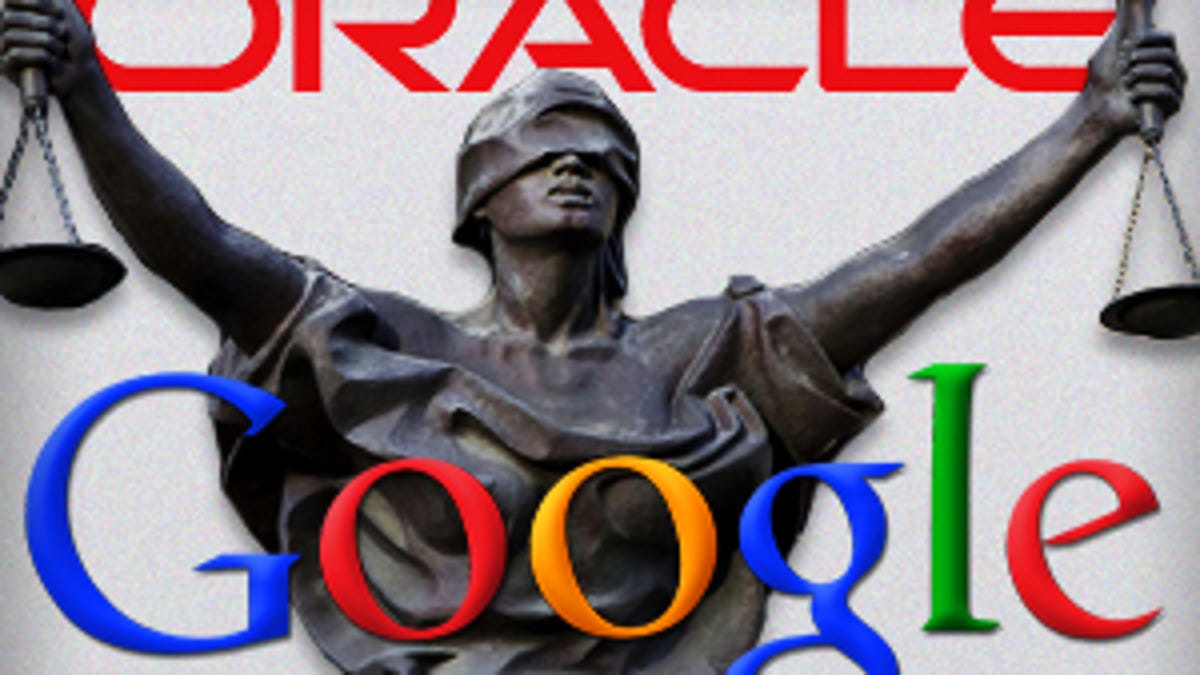No partial verdict in Oracle-Google copyright case after all
The jury reached unanimous agreement on three of four questions. Instead of letting the jury deadlock, however, the judge sent its members home for the weekend. See you Monday!

SAN FRANCISCO -- This afternoon, just before going home for the weekend, the jury almost came back with a partial verdict in the copyright phase of Oracle v. Google at the U.S. District Court here.
However, we won't know what they're thinking until at least Monday.
The jury sent a note to Judge William Alsup just after noon Pacific Time,
informing the court that it had come to a unanimous decision on all
questions but one -- on which the jury said it was at an "impasse." They were
apparently at an impasse on one of the important questions -- meaning
one of the first three of four issues the judge had asked them to decide. (See those questions below.)
Along with Alsup, both Oracle counsel Michael Jacobs and Google attorney Robert Van Nest were eager to move on with the case and hear the partial verdict.
Thereafter, Alsup called for the jury to come back into the courtroom, although the courtroom waited in near silence for several minutes before the five male and seven female jurors entered.
And then events reached their anticlimax.
When the judge asked the foreman if the jury was ready to issue its verdict, the foreman replied that not every juror had actually wanted to send its "impasse" note, explaining that the problem was the "timing" of sending it. Only a majority of the jurors believed they were at an impasse, but a few others think that if they wait until Monday, they could reach a unanimous vote on all counts.
The foreman also nearly gave away which question it was that the jury cannot reconcile a unanimous answer, but the judge cut him off just in time.
Alsup looked unsure on how to proceed, calling Jacobs and Van Nest into a sidebar conference while the courtroom waited for a few minutes.
In the end, Alsup said that "experience" had taught him that it would be better to let the jury go home and come back on Monday to vote again. If they are still at an impasse then, it is likely a partial verdict will be read.
However, the judge sternly reminded the jurors that they are not allowed to do any research of any kind while on the jury. He said if he learned that any jurors had looked at tech blogs, he'd be upset.
After the jury had departed the room, Alsup apologized to the courtroom for suggesting that if the jury's partial verdict was read today, that the court would be on recess on Monday.
"I'm sorry I brought up the idea of a three-day weekend," he concluded.
Jury deliberates for five days
The jury began deliberating on Monday afternoon after lawyers from both Oracle and Google offered their closing statements for the first segment of this trial.
On Tuesday, both legal teams met in the courtroom for a one-hour conference at 10 a.m., debating answers to jury questions concerning Google's use of Java APIs from Apache Harmony as well as Oracle's proposed witness list for the next segment of the trial, which will focus on patent infringement.
On Wednesday, the jury returned with more questions that pointed toward copyright infringement. Although the answer didn't entirely please Google's lawyers, Alsup instructed the jury that they could consider both direct and indirect streams of revenue related to Android.
On Thursday afternoon, the jury returned with the eighth note issued during the deliberation period, which asked, "What happens if we can't reach a unanimous decision and people are not budging?"
At an 8 a.m. hearing today, Alsup asked attorneys from both Oracle and Google for their thoughts about where to proceed from here. While neither side was entirely in favor of a partial verdict, Jacobs acknowledged that could be a potential path. Van Nest was resolutely against the idea, preferring a completely unanimous verdict or a mistrial for the copyrights segment of the case.
Nevertheless, in the afternoon, Van Nest concurred with Jacobs and the judge to move the case along and hear the partial verdict.
See the judge's final charge to the jury and, more important, the four questions it was asked to decide here:

